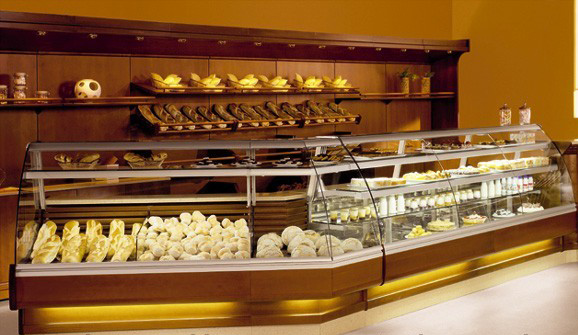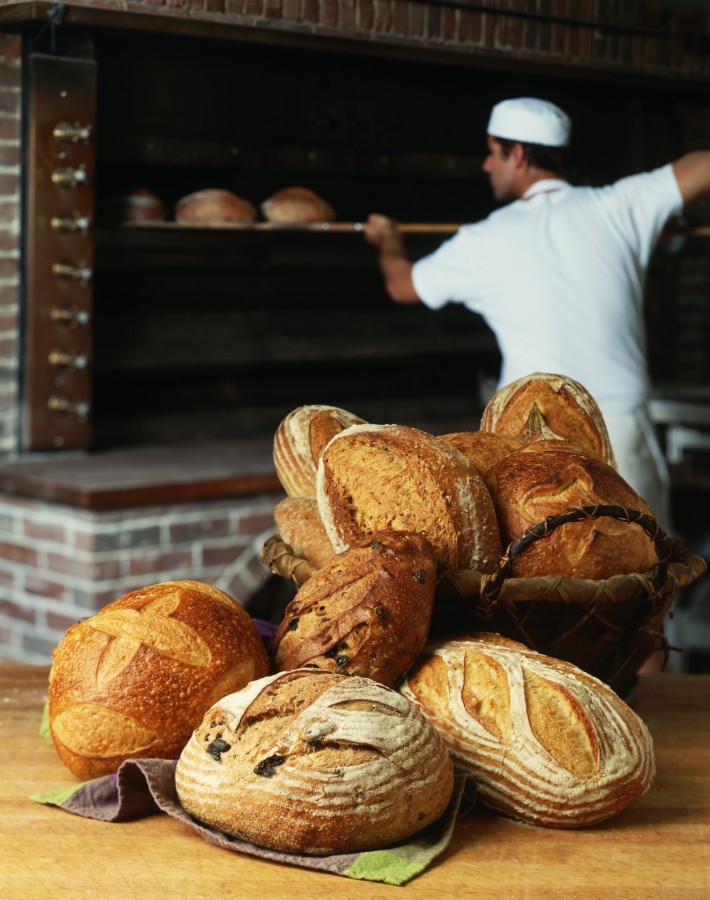A mini-bakery is a very profitable business today that does not require as many large investments at the beginning of production than a large bakery or a network of similar establishments. Therefore, many aspiring entrepreneurs start their business with a mini-bakery. Opening such an institution is not as easy as it seems, since it is important to clearly plan all the stages and steps, find a room, conduct an advertising campaign, hire staff, register an institution, and much more. In this article, we will give practical tips that will allow you to get around all the typical problems that arise before the owner of a new mini-bakery.
Registration of the entrepreneur and the bakery itself. Paperwork
First of all, you need to register the owner himself. If the founder of the bakery is you yourself, then it is better to choose the registration of a private entrepreneur, and if there are several owners, then an LLC. When registering, indicate the codes not only of manufacture, but also of the sale of products. After that, the bakery itself is registered, and the system for calculating and paying taxes is also selected. The cash register is also registered in the tax service.

In addition to registration, there are still many legal issues to be resolved. First of all, you need to pass an inspection for compliance with the standards in the sanitary and epidemiological station. This service will check not only the quality of products, but also the premises (whether the ceiling is whitewashed, whether the bakery is tiled, whether there is good ventilation, sewerage, whether the bakery is located in the basement). The owner of the bakery must obtain licenses for the production and sale of food products. Also, the premises will be checked for compliance with fire safety standards by the relevant services. Each hired employee must have a medical and work book.
To ensure that paperwork does not drag on for years, and then the premises do not have to be redone, use the services of a good lawyer. Also, the design of the premises should be trusted to architects and technologists who have already worked in this field.
Choose a room
As a rule, mini-bakeries immediately sell finished products without acting as a supplier, so the premises for such an establishment should be chosen correctly. As a rule, a mini-bakery is located in crowded places – near shopping centers or markets, near the metro or large offices. It is important to choose a place in the city where the flow of people is always large, then there will always be a lot of customers in your establishment.
The premises do not have to be in the city center, because renting or buying space there is many times more expensive than in a crowded place, but not in central areas. In order to correctly calculate what kind of influx of potential customers is needed and what is planned, it is advisable to hire a good marketer or outsource to a third-party company.
The area of the premises should also be optimal, because it is necessary to accommodate the workshop itself, the area for selling products, the warehouse, the offices of the director and accountants, latrines, office premises (for example, for storing cleaning equipment), etc. in one bakery. The optimal area is considered to be 150 square meters. m
We purchase the necessary equipment and supplies
Equipment for a mini-bakery depends on whether the production of a full or incomplete cycle will be in it. For a full cycle, you need to buy equipment such as a dough mixer and a dough rolling machine, a flour sifter, work tables, dough dividers, proofers, several baking ovens (for example, rotary or modular). It is also important to buy trolleys on which dough blanks will be stored, and then finished products. For the hall you need to buy thermal showcases, or ordinary racks. Also, depending on the products produced, the necessary equipment for a mini-bakery is purchased. For example, to store butter, milk, eggs and other ingredients necessary for dough or cream, you need to buy several refrigerators and freezers.
An incomplete cycle means that you will not make preparations for dough, but will only be engaged in baking and subsequent sale of products. Equipment for such a mini-bakery requires much less. Firstly, it is a freezer for storing blanks, as well as ovens for baking, thermal showcases.
Among other things, the bakery must have very high-quality ventilation, this is important so that the products do not get damp, and the finished dishes stay fresh longer. Also, for a mini-bakery that sells finished products, you will need a cash register, product racks, various display cases (refrigerators for cakes, thermal ones for pies with salty filling). It is also worth buying the necessary furniture, working equipment. It is also better to immediately purchase a safe.
We hire staff, purchase raw materials

The staff in a mini-bakery is the basis of delicious pastries, fulfilled plans, and, as a result, an influx of regular customers. Therefore, their choice should be treated as responsibly as possible. First of all, a technologist is hired, who monitors the recipe, the implementation of the plan, the taste of baking, its compliance with standards, etc.
flexible arrangement of equipment, etc. The rest of the staff is desirable to hire in 2 shifts. For 1 shift you need at least 2 bakers, a cashier and a cleaner. The number of employees can be increased depending on the volume of produced and sold products. Many bakeries do not hire a full-time accountant, but use the services of outsourcing firms. Those. You use the services of an accountant only when necessary (for example, once a month), and do not pay a full-time accountant for all the days of work.
Before you open a bakery, you need to purchase all the necessary raw materials. First of all, it’s flour. For baking it is necessary to take only flour of the first grade. It cannot be taken with a margin, because the product can quickly become damp or deteriorate. It is worth negotiating the supply of flour through intermediaries who offer the best wholesale price. It is advisable to have 2-3 suppliers in stock. Cooperation directly with factories that grind flour is unprofitable, because a large enterprise is unlikely to want to supply small batches of flour, and also because in the event of a disruption in the supply of flour, it will be necessary to immediately break off relations, and there will be no alternative (as in the case of a supplier), and may break the day of production, or even more.
In addition, for the bakery, you need to purchase yeast, vanillin, sugar and salt, vegetable and butter oils, eggs, baking powder, stabilizers and dyes. Depending on the products that will be presented, there may be a need for jam, poppy seeds, raisins and other dried fruits and nuts. It is advisable to immediately take care of the required number of cabinets and racks in the warehouse, and also not to order more perishable products than the existing refrigerators can accommodate.
After all these stages, you can safely open a mini-bakery and start production. Take care of a good advertisement that will tell the customers about the new fresh bakery point of sale. These can be flyers, billboard posters, etc.
